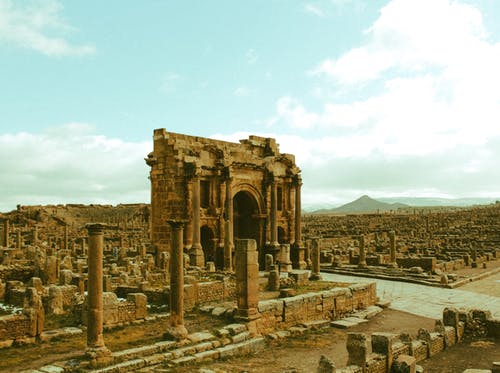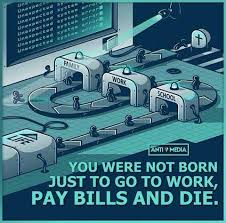What is IT & What does it Provoke?
I hate “politics” and the divisiveness it breeds. Therefore, it is rare that I expound on my political ideologies. especially here. However, with everything that is going on in the world, I would feel remiss if I didn’t at least provide a glimpse into what is possible. Mostly because, those who are interested in self-sufficiency and the liberty required to pursue it, might find that they have quite a bit of commonality with it. I have always been an anarchist in some form from a very young age. I remember the effect the lyrics of the Subhumans “Cradle to the Grave” had on me in my youth. Even when I tried to fit into society’s mold, internally, it felt completely foreign. As my children became older, I felt more comfortable expressing and discussing my views with them. Always the parent to allow them the space to think for themselves, I enjoyed giving them critical thinking “fat” to chew on. Mired in the daily grind, my views were often put on a back shelf in my mind. When I got sick and was stuck in the bed, I pulled them off the back shelf more often and was able to finally give them the mental attention they deserved. It was then that I discovered a different form of anarchy. The Green Anarchy movement has evolved (thank the powers that be) from people like Ted Kaczynski’s “Uni-bomber Manifesto” railing against technology (a very interesting read, by the way) and the anarcho-primitivists such as John Zerzan and Kevin Tucker who advocate a return to hunter-gather societies, sometimes against even the development of using language. They sought to distance themselves from WDA (world domination anarchy), which is not really anarchy but just another more violent version of authoritarian hierarchy. A new philosopher, Bellamy Fitzpatrick, sought to distance it even further from anarcho-primitivists who, in my own humble opinion, take it to an extreme level that would never even be possible, let alone probable. What is the point of having an ideology if it can’t actually be practiced or worked towards?
Bellamy Fitzpatrick started a journal called Backwoods in Spring 2018. In it he published an essay called “Invitation to Desertion”. It is a 24-page essay which I will pull excerpts from and attempt to explain the concepts in lay man’s terms, what it means for us as humans. I say this because Bellamy is one of those individuals whose knowledge base of ideologies, philosophies, writers and vocabulary are extensive and far-reaching. I will also include the link to the essay in case you are interested in reading it and analyzing it for yourself, which I highly recommend doing. As someone who promotes critical thinking, PLEASE read it and draw your own conclusions. The link to the original essay includes all of his citations and footnotes, so research away!

“This piece is an introduction to the theory motivating Backwoods. As theory is thea, “a view, and horan “to see” (Online Etymology Dictionary), we are talking here of a whole way of seeing, an understanding of the world and how to act meaningfully within it. It is presented as an antidote to the reigning ideology of neoliberal republicanism, aiming to delve into the roots of our crisis so as to understand how to live as much as possible outside it and against it.”
I.
We indict the Civilization of Leviathan as a truly insane way of life predicated on the creation of States to enforce the enslavement of the many so that the parasitic few may acquire absurd wealth and influence. Such social relations are poisonous to all involved, being based on venality and coercion, ridiculous commodity fetishism, and the death of real human community through domination and atomization.
II.
We denounce the world-eating mode of subsistence known as agriculture, with its effacement of ecosystems and their replacement with human domesticates, as a fundamental human error, one generative of mass extinction, soil exhaustion, war, and overpopulation.
III.
We refuse the techno-industrial logic that treats the beautiful tapestry of the living world as just so much grist for the mill, as an unliving “resource” to be “developed” — that is, to be endlessly plundered and paved, extirpated of life, and replaced by parking lots, factory farms, waste dumps, extraction sites, and our apartment complexes and offices that fittingly resemble battery cages.
IV.
We reject the meaninglessness of modernity that has produced perhaps the most humiliated, dislocated, deskilled, distracted, lonely, unhealthy, and unloved people that have ever lived.
V.
We champion anarchy: the freedom that comes from conscious self-ownership and voluntary relations of mutuality with our human and nonhuman kin in small, autarkic, face-to-face communities based in a regenerative relationship with the land.
VI.
We call for the application of knowledge gained from both traditional wisdom and modern ecology to the pursuit of modes of subsistence that are harmonious with the world that sustains us: foraging, hunting, fishing, and forest gardening.
VII.
We espouse a Neo-Luddism that consists of eschewing toxic and stupefying technologies, learning well-rounded skill sets for furnishing a living, and exploring and reviving traditional knowledge, skills, and forms of healing.
VIII.
We embrace the vivacity of deeply ecologically harmonious ways of life and the sense of place, presence, and fulfillment that comes from nourishing and being nourished by an enveloping, living world full of consciousness and agency.
That’s quite a platform! Here are some of the key points as expounded on in the essay itself…

On the crisis of modern civilization:
“The ways in which we eat, gain shelter, and make a living are largely decided for us, overdetermined by existing social norms that we can influence only minutely, allowing us only a little room to maneuver in decisions about how we want to live and what values we want to pursue.”
“After going from place to place to beg for the opportunity to sell our time, touting our value with a piece of paper that summarizes how compliant and productive we are, we are rewarded by surrendering what is produced with our labor, how our labor is performed, and what is done with the product afterward.”
“What is commonly called our freedom consists of only the most trivial and useless forms of freedom: the freedom to vote for some of one’s rulers among predetermined and highly similar political candidates, the freedom to choose among commodities that shriek at us with their labels and advertisements, the freedom to escape presence in one’s own life through a vast menagerie of pornography, television series, films, and — most recently, at the furthest outposts of moronizing innovation — virtual reality and sex robots. “
“As we modern slaves — for we do, as we shall see, truly deserve that perhaps inflammatory title — struggle to assert some sense of agency in our own lives, the wider world engulfs us as a vast and variegated, almost unfathomable crisis. Our crisis is multifarious, a web of interrelated and mutually reinforcing sub-crises — ecological, social, economic, psychic, philosophical — that not only immiserate our lives and poison our bodies, but, at this late stage, now threaten the integrity of the whole biosphere, that complex association of organisms and their habitats that encompasses the Earth and gives to it the richness of life in its beautifully simultaneous unity and diversity.”
To break that down, we are separated from our food supply, we are separated from the value of our efforts and, in the process of doing all these things, we are destroying the environment to solely push a consumerist agenda and the only benefit we receive in return is the illusion that we have some sort of choice in the matter and mind numbing distractions to keep us from thinking about it.

On The Politics of “The End of History”:
“To those who take our shared crisis seriously, the politics of the status quo can offer no true solution. More than that, the very existence of politics, as a specialized activity separated from life, is itself a manifestation of the crisis: it is the willed abdication of the many from responsibility over their own lives and shared world; it is the modern secular theology (Schmitt), in which one begs for deliverance by a vast and invisible being known as the State through the prayer of voting; and it is, of course, the province of one of the parasitic classes we call politicians, the professionalized caretakers of the dysfunctional social order.”

The illusion of voting makes us feel like we have a say, when in fact, we have given this ruling class of politicians complete control over our lives, livelihood, the world we live in and the indoctrination of our children. Essentially, we have given up our responsibilities in trade for a nanny state.
“Even among believers in legitimate political authority – that is, those who believe it is appropriate and desirable to have rulers so long as those rulers are good and just — rampant political corruption is an open secret, a fact recognized by every person in quotidian conversation. The ancient habits of graft, influence peddling, embezzlement, and other forms of corruption are not only alive, but thriving — they are a perpetual, inherent feature of a democratic republic, which merely selects for ambitious, venal demagogues who engage in these practices rather than, as it is often imagined, preventing their rise.”
Our political systems, rather than preventing the rise of corrupt and valueless people, promote specifically these types of people to be in charge. It is a well-known and open fact and even those who believe in legitimate government know this to be true.

On the Failure of Alternative Political Ideologies:
“As the desolation around the human being mirrors the desolation within the individual amidst the rise of this new techno-authoritarianism, the political alternatives to the status quo on both the Left and the Right, correspondingly, become increasingly ghoulish. With incredible foresight in the mid-19th century, philosopher Friedrich Nietzsche predicted that the nihilism brought on by the long, slow disintegration of Christianity would cause people of the West to willingly flee into the prisons of totalitarian political regimes to embrace a new, secular theology as a salve for their existential malaise — the horrors of Communism and Fascism in the 20th century bore out his prediction profoundly (Nietzsche). Now, however, the politically active of the younger generations, with amnesic zealotry, are intent on repeating these failed experiments in the perfectibility of the human through the authority of the State.”
Those who fail to study and learn history are doomed to repeat it. This brings us right back to the indoctrination (lack of critical thinking and rewritten history taught in education) of our children.
“Much of the Left, from more reformist to more revolutionary variants, now embraces what is variously called the ideology of social justice, anti-oppression practice, or, usually disparagingly, identity politics, in which our crisis is understood primarily in terms of institutionalized oppressor/oppressed dyads: White/Person of Color, Settler/Indigenous, Male/Female, Straight/LGBTQ,
able-bodied/disabled, and so forth. Through this understanding of oppression – a fusion of Maoism and vulgarized postmodernism, often under- or unrecognized as such by its adherents —members of the oppressor half of the dualisms are objectively and perhaps unavoidably dominators: not only their actions but also their ways of thinking are apt to reproduce this oppression, even if the individual in question consciously rejects and resists the system of institutionalized hierarchy as a whole. Conversely, members of the oppressed half of the dualisms are not only perceived as innocent victims but also objectively revolutionary figures well-placed to be the leaders of resistance: their status as the oppressed not only gives them a specialist knowledge of the system as a whole, but also means virtually any action that they take against their oppressors is justified and liberatory.”
The Left’s campaign of social justice exploits the natural duality that exists and separates identities into oppressed or oppressor when in reality we are all victimized by the system. The “oppressors” are not actually masters, just differently privileged slaves to the same system. The actual rulers of the game have tricked the social justice warriors into blaming their fellow slaves.
“The past few years have seen a sudden rise in a countercultural Right-wing movement roughly organized around the label Alt-Right, a hodgepodge of White Nationalists or “Identitarians,” Neo-Reactionaries, conspiracy theorists, and outright self-identified Neo-Nazis. The Alt-Right ideologues present, and presumably sincerely view, themselves as genuinely countercultural or even revolutionary, as they are resisting the rise of “cultural Marxism,”4 the suppression of free speech,5 and, most importantly, the death of European culture and “white genocide” via mass immigration to Europe and the United States coupled with the currently low birth rates of European-descended peoples. With often messianic, mythic rhetoric, they imagine their victory as a kind of second European renaissance achieved through the creation of a European homeland, a “white ethno-state,” in which there would be a flourishing of artistic culture, science, and moral and spiritual life. Some of the social critiques of the Alt-Right — their criticism of censorship, of endless U.S. war under the military-industrial complex, and of the death of meaning under consumerism — are well-placed, though neither complete nor remotely satisfactorily addressed by their proposed solution of racial separatism. There is nothing inherently liberatory about racial nationalism, in spite of its ascendency in European form in the present politics of the Right and in virtually every non-European form in the politics of the Left, past and present.6 Racially homogeneous societies historically have, currently do, and undoubtedly will continue to involve all of the horrors of civilization enumerated thus far, including slavery. Indeed, the sociologist and historian of slavery Orlando Patterson, in his survey of sixty-six slave societies, came to the perhaps surprising conclusion that racial similarity or difference had no effect on either how well-treated slaves were materially or how much contempt their masters had for them (Patterson). Nationalism only obscures this reality by creating a false unity, an imagined automatic solidarity between parasites and hosts — nationalism is the illusory substitute of the real, intimate community of the small, face-to-face band societies in which we evolved……The Alt-Right thus ironically parallels the vulgar communists who imagine, against evidence and intuition, that a dictatorship of the proletariat, having seized the State and used its authoritarian powers to secure the transition to communism, would ultimately then allow a withering away of the State to create a stateless society. The irony of this parallel dissipates with the clarity that both the political Left and the political Right have, from an anarchist perspective, always had more in common than they have had differences: both have the aim of Statecraft — that is, authority of the few and slavery of the many.”
The global hierarchy has equal contempt for all of us and racial nationalism only provides a false sense of security and unity. This serves as proof that the Left and the Right have way more commonality than differences, they support the existence of a state, which is the few ruling the many.

On the False Liberation of Minimalist Anarchism:
“What of anarchism, that most extreme political philosophy of human freedom? Anarchism deserves great credit and consideration for its liberatory recognition that the freedoms of the individual and the freedoms of the community (or positive and negative freedoms) are not always and inherently mutually opposed; they can, in certain arrangements, instead be mutually enhancing. For this reason, we place our project firmly within the anarchist tradition, heterodox though it may be. Sadly, however, most anarchist tendencies are nonetheless bogged down in delusory pseudo-liberations. ……. But a sober look at the history of revolutions does not reveal a great expansion of freedom, instead only revolutions in the modes of authority. ……In an effort to distance themselves from this macabre history, many modern anarchists favor what they call insurrection, an entirely decentralized, leaderless mode of revolution based on attentat and propaganda. By avoiding the formation of formal parties or vanguards of any kind, the logic goes, there will be no authority to replace what is destroyed. The collapse of the social order, instead, will open the door for anarchy: the free life of human beings without authority. But insurrectionism is afflicted with the most poisonous sort of magical thinking and optimism about human beings.”
Basically, Fitzpatrick asserts that anarchists as a whole are most likely to have an idea of what is wanted when speaking of freedom and sovereignty. Unfortunately, the means with which they want to come by this is hampered by human nature.
“For most people, their dissatisfaction with the status quo consists of wanting more commodities, more leisure, more prestigious and less onerous jobs, better prospects in society for their offspring, and so forth — these are not people who dream of profound transformations of the dominant culture. At best, we might say some significant number of people want a society that feels, in some vague and under-theorized way, more fair or just, which might translate into a lower disparity of wealth and an expansion of the welfare state. But how many people actually crave to give up cars, air conditioning, Netflix, pornography, and modern medicine? If they are not willing, would the cadre of insurrectionaries then force such a change — or do they instead believe that they could recreate a society with high technology and luxury commodities that is, somehow, non-authoritarian and non-ecocidal? Furthermore, the symbolic culture of society — its religions, myths, mores, notions of success, life cycle events, and so forth — provides most people with a much-needed shield of artificial meaning, protecting them from existential dread and the terror of death — they are thus attached psychically at a deep, partially unconscious level to their cultures: to bring an end to the expected functioning of society at large would entail coming to terms with the reality of one’s life and choices as if for the first time, a potentially deeply traumatic experience.”
Most people’s ideas of a “better life” are ideas where they don’t have to work so hard or have more time to spend in recreation. WDA have a woefully short-sided view of human nature. The fall of society as people know it would cause many people trauma, as they would suddenly be responsible for taking care of themselves and the repercussions of their decisions.

On Leviathan and the Civitas:
“If we eschew the illusions of reform and revolution, the politics of the Left and the Right, we arrive at a consistent critique and thus recognize our crisis for what it really is. Returning to the claim adumbrated at the outset, our crisis is not merely one of politics, society, or economics, but one of civilization, and our liberatory project is therefore not political, reformist, or revolutionary, but instead anti-civilizational. To identify oneself and one’s project as being anti-civilizational can come across as extreme, absurd, or even maudlin — what can it mean to be “against civilization”? Because of both the mutability of language and the ideological blinders nearly all of us accrue and so few of us shed, civilization means to many of us all that is good and decent about human sociality, typically contrasted with barbarism — thus, civilization is the rule of law in contrast to barbarism’s arbitrary tyranny, it is orderly cooperation rather than the chaotic “war of all against all,”11 it is high art and culture in favor of brutish struggle for mere survival, and it is scientific discovery and technological sophistication against ignorance, superstition, and toil. Used in this commonplace way, civilization is more an ethical assertion — a claim about how one ought to live — than it is a descriptive one — a claim about how people actually do live. Even then, it is only a loose, obfuscatory sort of ethical claim, a kind of bromidic ideal, since every so-called civilization will necessarily feature a great deal of so-called barbarism.”
After providing us with a lengthy reason why all the other solutions will not and cannot work, we come to the crux of the argument. The problem is civilization. But why? Where does this come from? In order to get to that point, it is necessary to define certain things.
“The term civilization comes from the Latin civitas, popularized in ancient Rome by the orator Cicero to describe the supposed implicit social contract to which all Roman citizens had agreed to as the basis of their coexistence. For Cicero, the civitas genuinely existed because people believed it existed: that they acted and thought in certain consistent ways in dealing with one another is all that civilization really was — it was, as we said at the outset, a way of life and a way of seeing. The civitas was thus not merely the city-state as a structure or as a population of citizens, but also the shared idea of the civic community, the mutually created and reinforced psychosocial construction of the city-state. Following Cicero, by civilization, therefore, we refer to both the material and the psychic: civilization is sets of thoughts and gestures reproduced daily as a whole form of life, one that has developed only very recently and abruptly in the course of human existence. This way of life is characterized by the growth and maintenance of cities, with a city defined for our purposes as an area of permanent human shelter with a dense and large population. By being permanent, a city’s population cannot move in concordance with local ecological cycles, meaning it has to subsist in spite of them, against them. By being a dense population, a city’s inhabitants exceed the carrying capacity of their land base, meaning they must import nutrients from a surrounding rural area typically characterized by agriculture as well as shuttle their wastes elsewhere lest they choke on them. By being a large population, citizens exceed the numbers possible for face-to-face and intimate community and therefore exist among strangers, whom they necessarily treat as abstract persons, not kin.”
Here is where I had my “Ah ha” moment. Human civilization (which has existed in a very short time in our species) was in no way able to exist without denying the land and the people everything it needs to survive.

“In other words, an abstract idea dreamed up by an individual and reinforced through communication with others around them comes to be half-consciously or unconsciously treated as a concrete force. It is thus that we create this phantasmagoria of “fixed ideas”14 that seem to dominate and dictate our lives: deities, nation-states, social roles, the economy, the nuclear family, and so forth.”
He continues on to give us a phenomenal example:
“the activity of subsistence — the creation of nourishment, shelter, medicine, and other essentials for survival from one’s habitat — which could be done through freely-chosen cooperation with others in a self-directed manner and in an unalienated relationship with the non-human world that supports us all, is instead highly mediated through the confining psychosocial infrastructure, we call the economy. Because so many of us so often treat our social roles as workers and our abstraction of money as more real than our creative powers and ability to communicate and cooperate, enormous numbers of us submit to dangerous, toxic, humiliating, or simply tedious and unnecessary (Graeber) work, surrendering our agency to managers and investors who gain wealth off of our labor, in order to create commodities, goods and services that are detached from those who made them and then more or less passively consumed by others for the subsistence and recreation whose possibility for direct obtainment was prohibited by the time and effort spent working in the first place.”
There it is. We have all bought into this reality because we have been conditioned to, when in actuality, we are extremely capable of doing all these things and so much more without the life defining interjection of preconceived notions of survival projected onto us by the very people we trusted to help us. It is identifiably, total and complete slave ideology and we are all subjected to it.
A little history lesson….
“In the very beginnings of civilization, with the emergence of the first lasting civilizations of Sumer, Egypt, and the Indus Valley, people were dispossessed of land and the fruits of their labor through taxation and theocratic ownership. As civilizations have deepened and broadened, most people have come to own and/or have access to less and less land. Common stewardship of land used for food, natural medicines, and recreation has nearly disappeared, and the little remaining is often closely managed by State agents. Many people no longer even own their own homes, while those that do almost invariably have tiny parcels insufficient for subsistence. Now, we live in a world where one can step outside their home — which may be only rented from someone else or be in danger of being taken from them by a bank or government — to drive on roads that do not belong to them into cities full of stores with needed foods and goods taken from those who originally made them and available only for a price. Nearly the whole world is claimed as property, and it can only be accessed by the many who need it by performing the submissive behavioral rituals of civilization.
Thus, through self-alienation and dispossession acting in concert, civilized persons are reduced to a highly dependent relationship with the psychic and material institutions of civilization. Their life activities are no longer felt as their own, but have instead become ritualized, stiffened, dissociated from them, as though they were all merely playing a role in a greater body — it is the body of Leviathan, the State, whose function is to acquire and store material wealth, bring power and prestige to a few, wage war on competing Leviathans, and wreck the Earth all the while.”

lalesh aldarwish
He goes on to define slavery…
“This situation, we contend, deserves the label slavery, with the recognition that slavery has existed in highly diverse, qualitatively distinct forms across civilized history: chattel slavery, concubinage, and indentured servitude, in which a person is more or less directly owned as property; debt, wage, and salary slavery, in which persons are parasitized indirectly through the control of money and property; and temple slavery, eunuchism, and social caste systems, in which persons are owned and othered as a result of spiritual or religious belief systems.”
Slavery is, for the purposes of our journal, the sustained, ultimately violent parasitization of self-alienating and dispossessed persons. This definition that we employ in this journal is an extension and modification of that on offer from celebrated historians of chattel slavery David Brion Davis and Orlando Patterson, who, despite their brilliance and erudition, cannot quite bring themselves to describe our present crisis as slavery — even when they come exceedingly close to doing so, going so far as to cite those who do — instead resorting to less inflammatory, more academic language like, “exploitation” or “bondage” (Davis 1966, Davis 1984, Patterson)….
Thus, civilization is born in dispossession and reification, maintains itself through slavery and organized violence, and entails war and ecocide. To truly value individual freedom and joy, kinship and love among humans, intimacy with the beautiful nonhuman world, and psychic peace and clarity entails anti-civilization anarchy, the abandonment of the civilized way of life.”
I sincerely hope that you have stayed with me to this point. The reason I say this is because in order to find a solution, the COMPLETE problem must be identified. The problem is that humans were not meant to live like this, and I believe that more and more of us are coming to that realization every day.
The solution that green anarchy truly offers is desertion, autarky and re-inhabitation. The greatest caveat is that, many of us, from homesteaders to survivalists to most “3rd world” & indigenous communities are already doing this.

“By desertion, we mean moving toward the abandonment of civilization, both materially and psychically. Because civilization and the State are reproduced daily primarily through the submissive, undertheorized thoughts and gestures of the many — because civilization is first and foremost the civitas that we psychosocially create — it follows that we must unmake it through abandoning its lifeway. Material desertion means decreasing or eliminating dependence on civilized slave economies for one’s subsistence — food, water, shelter, fuel, and medicine — in favor of its obtainment through direct interface with one’s habitat individually or through voluntary cooperation in free association with others. Psychic desertion means the abandonment of the reified and submissive civilized slave ideologies on which the daily functioning of society is based; the alienated and false relationships of social scripts and roles; and the stupeyfing succor of delusory religions, pacifying entertainment, and commodity fetishism. Replacing this civilized worldview, I suggest, would mean in a nutshell the adoption of a philosophy of conscious self-ownership and personal liberation, the pursuit of openhearted relations based in mutuality and voluntary association in common projects, and the embrace of the hard truths of life with a sense of existentialism and personal honor rather than the comforting illusions civilization offers us as carrots for our submission. It would mean further a deep identification of oneself as part of the flesh of the world, as necessarily tied to the life of all other earthly beings — depending on one’s ontological or metaphysical beliefs, this might mean an acknowledgement of the material codependency of all creatures in the biosphere, or coexistence with them as part of the anima=mundi, or world-soul.”
“Moreover, civilization depends for its stability on reformers of all kinds to protect its human constituents and nonhuman victims from its worst excesses: social welfare protects against crippling destitution and its resultant social chaos, the expansion of civil rights neuters potentially dangerous underclasses and outlaws by allowing some of them to feel they suddenly have a stake in the preservation of the social order, environmental protection legislation means the poisoning and denuding of the biosphere to the point of uninhabitability will take a bit longer. The reformer, who might imagine himself the staunch social critic, is thus ironically civilization’s most sincere and adroit guardian. Nearly the same can be said of the revolutionary, who, as was discussed above, is a kind of aggressive hyper-reformer, refusing incrementality in favor of a dramatic and immediate transformation of civilization. But the history of civilization is a history of its being reformed and revolutionized — indeed, progressive social reform was part of the very earliest States.15 We are officially told, and it is popularly believed, that we in the modern West live in the most reformed, enlightened, liberated civilizations that have ever existed (and in the United States, our civilization was born in revolution), yet these civilizations’ ruling classes offer us nearly no influence whatsoever on policy decisions, surveil evermore of our lives, crush political dissent outside of narrowly permitted avenues, and have gutted the living world to nearly its last breath — such are the fruits of reform and revolution.”
Autarky
“In reciprocity with desertion is autarky, the knowledge and practice of providing one’s subsistence — again, food, water, shelter, fuel, and medicine — for and by oneself in an unalienated relationship with one’s habitat and in voluntary cooperation with others with whom one freely associates. Desertion, if it is not to be suicidal, is only possible in proportion with one’s practice of autarky; and, in turn, a true engagement with autarky prefigures and implies desertion. …..
The economy of capitalist modernity, with its imposed division of labor and its thanatotic evisceration of the living world, pressures us into lifestyles that are psychically and materially distant from our habitats and into occupations in which we tend to learn only a small number of skills related to survival — and perhaps not even that. Pursuing autarky thus implies a rejection of this hyper-specialization in favor of a profound re-skilling, a regaining of the venerable and valuable skills of foraging, tending, tracking, hunting, fishing, preserving, woodworking, herbalism, and others that were, until very recently, so common among humans.
….. we will examine forest gardening as a methodology of achieving autarky. Through its practice, one can gain subsistence from the land without the ecocide and drudgery of agriculture, enriching the land for not only human, but also nonhuman, purposes and thus achieving a kind of agricultural counterrevolution.”

Reinhabitation
“Reinhabitation is the outcome of desertion and autarky. Anarchist Emma Goldman referred to a liberated existence as “simpler, but far deeper and richer”16- I say that this is the essence of reinhabitation. It is, in the most profound sense, being somewhere. It is shaping and feeding the land-base as the land-base feeds and shapes you, consciously being part of the interconnected senses and metabolic processes of one’s ecosystem, co-participating with other creatures to tend to the whole that sustains us all.”
“To truly flourish as organisms in communion with our habitats, we must live in a way that nourishes the human psyche: in small, sustained, face-to-face, autarkic communities of kinship. In such a lifeway, it would be possible to know everyone’s story, to count on one another, to live without fear of one another, and to be united in a common purpose as what one might call a band society, or, less preferably, a family or tribe.18 Such a group would not be a suppression of individuality through stifling and incessant collectivism, but in fact the terrain on which a true union of individualities could grow, as the ethnographic record of such band societies suggests.”
“— our culture of late modernity, where one can disappear into anonymity and find a new social group at the first sign of conflict or disappointment, is the grotesque antithesis of healthful human relations. How much of human misery today is a result of loneliness, fear of abandonment, sexual poverty and jealousy, or isolation in times of crisis?”
The Invitation
“Through the way of life called civilization, we have become parasites of one another and a cancer to the broader biosphere. The modern human is a tragicomic caricature: a creature who cannot so much as eat or shit without plugging into one of the apertures of a vast, world-eating industrial infrastructure; a creature whose capacities are daily diminished and who is evermore humiliated and moronized by the latest consumerist excrescence, from automated salt-shakers and “organic water” to hiring fake friends to appear in “selfies” taken by that apotheosis of anomie, the smartphone; and a creature for whom the emptiness and ennui of his life is so obvious and incontrovertible that it can only be drowned by ceaseless and shallow distraction. The gravity of our error has been plain for centuries; it is time to turn away.”
“The present situation is grim: the forces of the parasitic classes are vast, submission and resignation are widespread, and the biosphere is, by some estimates, already irrevocably in a mass extinction spiral. But whether we deserters are so fabulously successful as to initiate a widespread secessionist movement, or so insignificant as to make merely “pockets of happiness” that quickly pass away after our deaths, I believe the choice is clear.”
“Thus, our invitation to all those who can hear it: Refuse the submissive values and false hopes of the dominant ideologies; follow the implications of radical critique — say and live what you know to be true. Refuse the slavery of being a mere appendage of Leviathan — take back your life. Refuse the cancerousness of techno-industrial-agricultural life — pursue mutuality with the living world and rediscover your animality.”

So, you see, my friends, there is a way out of this miasma of modern misery. We have been moving towards it for a little while now. Educating, taking small actions, focusing on local and personal needs, not so silently spreading the word that there is another way to live. If you are interested in reading the full essay and other works by Bellamy Fitzpatrick. You can find a wealth of information on podcasts, the Anarchist library, YouTube, etc. I, myself, was interested enough to contact Bellamy and he, graciously, through all the tech mishaps, let me interview him to flesh out some more questions I had when it came to his philosophy of Green anarchy and the intersection of ideas that this blog covers. I will be writing up that interview for next week.
Links:
https://theanarchistlibrary.org/library/bellamy-fitzpatrick-an-invitation-to-desertion
https://theanarchistlibrary.org/category/author/bellamy-fitzpatrick
His YouTube channel also goes more in-depth into these topics of discussion.

